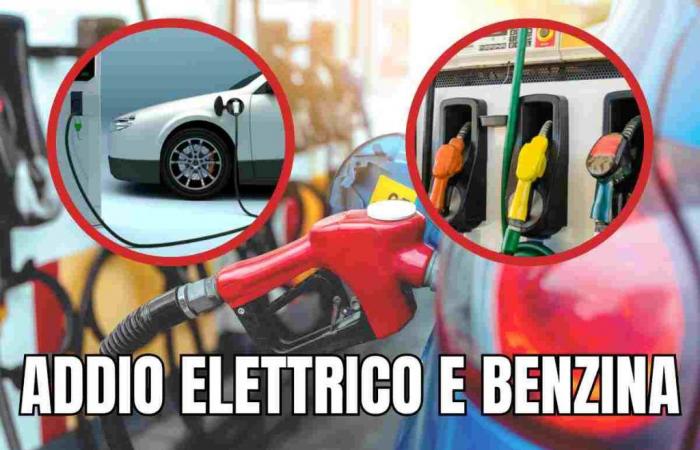Electric already at the end of the line? The new fuels could redefine the future of the automotive industry, it is a real revolution.
The electric transition longed for by the European Union, which has repeatedly expressed its intention to stop the production of cars with traditional engines by 2035, is having more difficult than expected. Despite the many investments of companies, which are largely converting their models, the demand for zero-emission cars is struggling to take off.
The need to have sustainable models and to protect the environment from harmful emissions from cars is obviously a point that everyone agrees on. However, the electric solution still leaves some points of doubt on potential customers. Firstly, the cost is still significantly higher than combustion models, and secondly, the charging times and methods are much more complicated than the normal filling up at the petrol station.
This is why many hypothesize an at least partial “about-face” on the electricity transition and the arrival of new sustainable solutions. It is no coincidence that many car manufacturers, especially from Japan, have already moved in this direction and are already starting to invest in new solutions.
Goodbye electric, the future is e-fuels
The world of motors has long opened up to e-fuels, synthetic fuels similar in chemical composition to fossil fuels (they are both hydrocarbons) and for this reason can easily be used on the combustion engines that are already in our cars. Compared to traditional fuels such as diesel or petrol, however, they are environmentally sustainable: thanks to the electrolysis process, carbon dioxide is transformed into renewable hydrogen, making e-fuels totally sustainable.
The advantages are easy to say: thanks to these innovative fuels there would be no need to replace cars already in circulation (a process which in the event of an electric transition would take decades, in which traditional engines would continue to pollute) and we could continue to use combustion engines, “eliminating” all the perplexities linked to electric. In Europe and in the rest of the world, more and more companies are continuing to move in this direction and making the path that leads to e-fuels increasingly concrete.
While there don’t seem to be too many doubts about how it works, the biggest concern at the moment is the price. At the moment, e-fuels have a fairly high estimated cost. The key to their diffusion will be to make them accessible to everyone and bring them to the price of petrol or diesel. Many are confident that we can reach the finish line in a short time, while others are convinced that they will remain a “rich” alternative for a long time to come.




